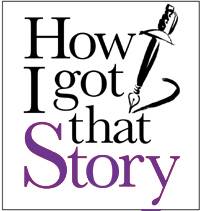In a conversation with D.C.-area public radio host Kojo Nnamdi about "the changing face of City Paper," Erik Wemple says that "perhaps a little too much has been made of" his previous comments on the fate of long-form narrative pieces in the paper. Those stories are "an incredible abyss of work," he says. "We could not really sustain that sort of investment, while at the same time feeding the website." However, he adds, "it's not as if we will stop doing long narrative altogether," it will just be less often. He also notes that long-form narratives often don't generate much web traffic, and that Creative Loafing has made the web a priority. "If we don't come up with models that push web traffic, we are dead, and I am out of a job," Wemple says.
On Atlanta Magazine's blog, former Creative Loafing (Atlanta) staffer Steve Fennessy talks to Ben Eason -- who he calls "a tireless networker with a love of jargon" -- and a few worried staffers about this week's filing. Eason reiterates a few points he's been making to the press this week, and adds that, despite his web-first strategy, he doesn't envision a time when his publications don't produce actual newspapers. MORE: Read more from Creative Loafing's John Sugg, Washington City Paper's Angela Valdez, Gawker, and consultant Mark Potts.
When Creative Loafing filed for Chapter 11 bankruptcy protection yesterday, the news was widely reported. AAN News scoured the wires, separated the wheat from the chaff, and collected some of the pertinent information and opinion.
The company, which owns Creative Loafing papers in Atlanta, Charlotte, Sarasota and Tampa, as well as the Chicago Reader and Washington City Paper, filed for Chapter 11 bankruptcy protection this morning, the St. Petersburg Times reports. City Paper editor Erik Wemple reports that CEO Ben Eason discussed the filing with top company officials in a conference call this morning, and said that the bankruptcy filing would allow CL's six papers to establish a greater online presence while the company reorganizes its operations. A corporate memo on the filing says it "has little to do with the acquisition" of the Reader and City Paper last year. Eason also said that the move entails no liquidation or layoffs. In fact, the Chapter 11 filing will roll back editorial staff cuts at the papers, Wemple writes. MORE: Read more about the move from Creative Loafing (Tampa), the Reader, Crain's and Bloomberg News.
The Georgetown Voice's nearly 3,000-word story on the alt-weekly looks at how it is evolving under the ownership of Creative Loafing, and how the paper is fighting to maintain its identity -- and market share -- despite having fewer resources. "You want to create a rich environment and then bring it down into the print," says CL CEO Ben Eason, who is currently focused on uniting the company's six papers as a national web presence. "Without a doubt, the web is a far richer environment than print." Editor Erik Wemple says he sees the paper a year from now as being "very, very, very much a web machine." But publisher Amy Austin adds that, while online advertising revenue is quickly growing for City Paper, it still only makes up approximately 5 percent of the paper's total revenue, which has been in decline. By 2006, the paper's net revenue -- traditionally around 15 percent -- had fallen to 4.7 percent.
That's according to managing editor Andrew Beaujon, who notes that the paper recently produced new promotional magnets and pens, on top of making promo hats earlier in the month. "As you may have read, we are facing budget cuts," Beaujon writes. "So I guess I'm wondering whether the hats are a tactic to comfort or maybe confuse us -- perhaps if our heads are warm, we may not worry so much about our newsroom possibly going kablooey?"
- Go to the previous page
- 1
- …
- 11
- 12
- 13
- 14
- 15
- 16
- 17
- …
- 42
- Go to the next page

